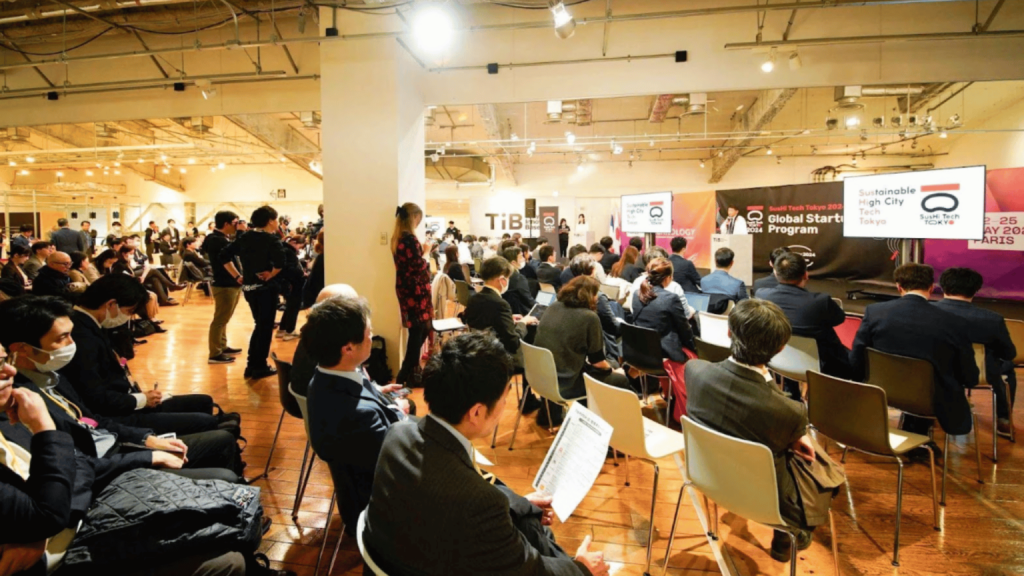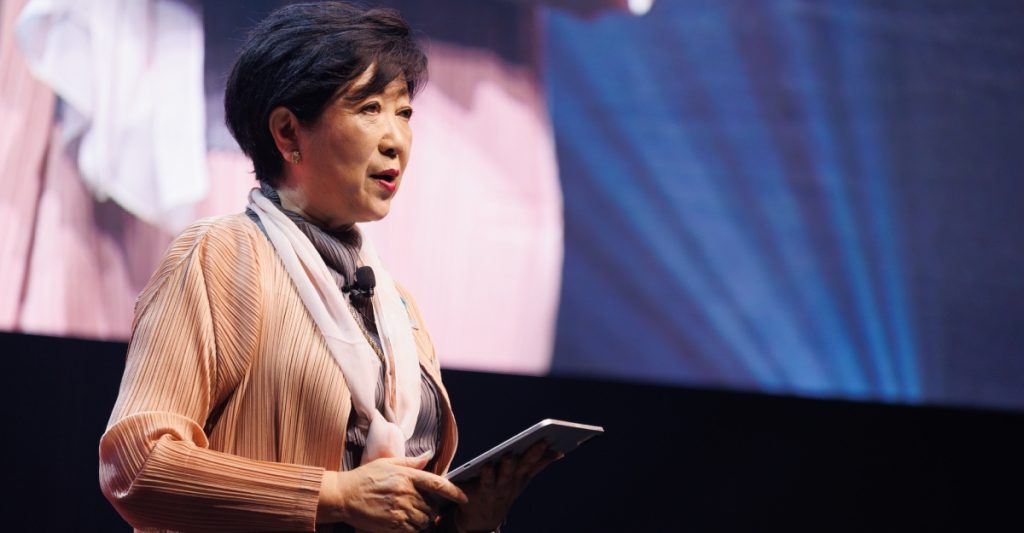Japan is known for its technological advancements, attractive investment prospects, and skilled workforce, yet cultural factors, such as a preference for stable employment and risk-aversity have impeded entrepreneurship and innovation in the country.
The Tokyo Metropolitan Government (TMG) now intends to change its game and has set an ambitious goal for Tokyo to become the “most-startup friendly” city in the world, and held its first Global Startup Conference in February 2023, which attracted over 300 companies and more than 25,000 visitors.
Fast forward to today, and Tokyo’s momentum in fostering its startup ecosystem has only intensified, with the country hosting the largest innovation conference in Asia: the SusHi Tech Tokyo 2024.
An abbreviation for “Sustainable High City Tech”, SusHi Tech Tokyo 2024 is a one-month event from April 27 to May 26 consisting of three programs: Global Startup Programme, City Leaders Programme, and Showcase Programme.
“I want SusHi Tech Tokyo to become a platform that looks to the future through your wisdom and ideas,” Governor Yuriko Koike of Tokyo, declared at the commencement of the Global Startup Programme today (May 15).
And to do that, the country aims to collaborate with startups keen on solving social issues including environmental urban challenges in the city and Japan.
Building a sustainable city

“Climate change, natural disasters, disparity, and poverty—the world is now confronted by increasingly serious crises,” said Governor Koike. “Countries around the globe are working hard to overcome these challenges and realise a sustainable world.”
Tokyo wishes to “contribute to the world and take the lead” in building a sustainable city through the adoption of cutting edge technology and innovation.
Japan has practised a circular economy since the Edo period (1603 to 1868), where “merchants would purchase items like used clothes or broken dishes, repair them to give them new value, and then resell them,” Governor Koike added.
To this day, the country incorporates plenty of zero-emission initiatives, which includes the use of renewable energy and hydrogen as a fuel.
The DNA of this sustainable Edo lives on in Tokyo. This is its strength in creating the future—a strength that is hard to find elsewhere in the world. Adding to this are our continuous efforts to transform Tokyo into the world’s most balanced, sustainable city, despite being one of the largest cities in the world.
– Governor Yuriko Koike of Tokyo
Yet, the goal of building a sustainable city can only be realised through collaboration.
Reminiscing her visit to Silicon Valley last week, Governor Koike said that diverse talent from around the globe are drawn to the hub by the “spirit of entrepreneurship, educational environment, and wealth of human and financial resources”. “There, [these talents] interact and collaborate with each other,” she added.
“Tokyo also wishes to create a unique ecosystem that fully harnesses diverse potential and gives birth to innovation.”
How can Singapore startups expand and grow their companies in Tokyo?
In 2023, Tokyo unveiled an ambitious “10 by 10 by 10” initiative, targeting significant growth across three key metrics by 2028. The plan aimed for a tenfold increase in unicorns emerging from Tokyo, a tenfold rise in startups originating from the city, and a tenfold boost in public-private collaborative projects with startups.
It has already realised one facet of this vision, achieving a tenfold increase in public-private collaborative projects within just one year.
Additionally, TMG has pledged a substantial financial backing to bolster this initiative, totalling up to US$1 billion. Presently, a budget of US$550 million has been secured—over half of the support fund allocated for the comprehensive five-year plan.

During the commencement of the Global Startup Programme, Governor Koike also announced the official opening of the Tokyo Innovation Base (TIB).
With the goal of becoming the “node” for global innovation, the base provides a platform for entrepreneurs to forge strategic partnerships by connecting them key industry players. It is designed for hosting regular industry events, meetups, and conferences, offering valuable opportunities for entrepreneurs, investors, and industry experts to connect and exchange ideas.
Through these initiatives, startups from all over the globe can seize opportunities for growth and success in Japan.
In a panel discussion yesterday (May 14), Mandy Hon, the CEO and co-founder of Singapore-based alternative meat company ImpacFat, shared that the startup ecosystem in Japan is “very encouraging” for companies like hers.
The startup journey can be very lonely—we are always trying to fight for a lot of opportunities. In Japan, we have received a lot of inquiries and collaborations from various key players, including big corporations as they increase their focus in sustainability.
They are doing a lot more R&D and product development in sustainability, and we are very happy that we can contribute our part and work together with them.
– Many Hon, CEO and founder, ImpacFat
Ultimately, the future of Tokyo’s startup ecosystem is promising, particularly for startups ready to take on a global market.
Featured Image Credit: Vulcan Post










